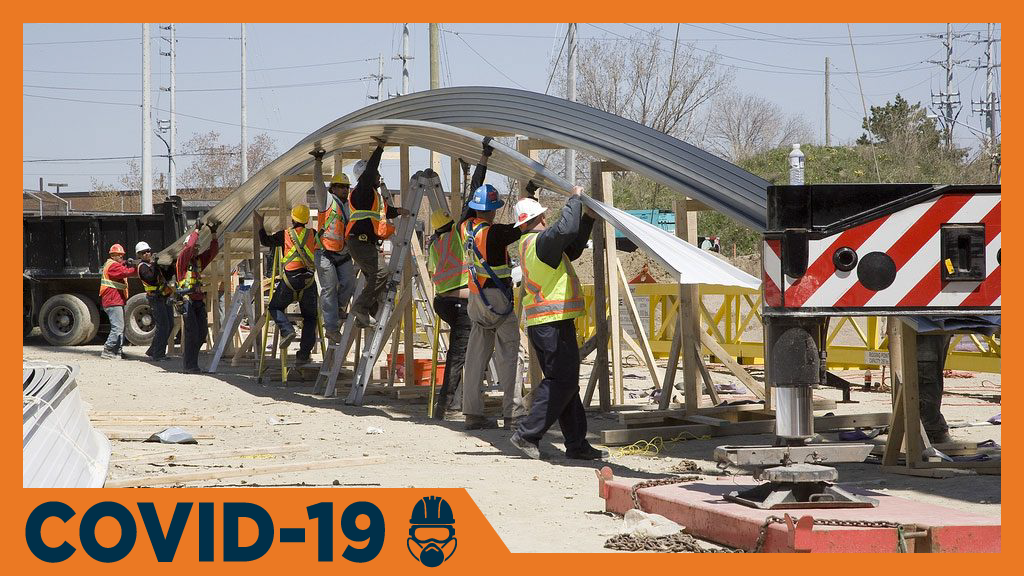A COVID-19-inspired survey of its members has given the Association of Consulting Engineering Companies — Canada (ACEC) ammunition as it lobbies the federal government for major stimulus spending and reforms of the Canada Emergency Wage Subsidy (CEWS).
The survey, concluded in June, found that almost all respondents estimated their revenue losses due to the crisis to be less than 50 per cent, and that while half of the survey participants had to lay off staff, the layoffs were less than five per cent of their total employees.
When asked where ACEC advocacy efforts should be focused, most respondents urged the ACEC to focus on infrastructure investment as the best path to stimulate the economy.
“It has proven helpful to us on a number of fronts,” commented ACEC president and CEO John Gamble. “It allows us to get a snapshot of our own industry and it allows us to speak to the federal government and other stakeholders with a fair degree of confidence when we’re talking about the challenges that our industry is having.”
The survey showed that a third of respondents were approved for federal programs they applied to when the pandemic hit but a third were not. The CEWS was the program which the highest number of survey participants qualified for, and of those who qualified, 50 per cent were able to avoid layoffs.
It is very important to remind people that stimulus is not a subsidy or support,
— John Gamble
Association of Consulting Engineering Companies — Canada
Gamble said in communications with the government on the CEWS the ACEC suggested the program have a sliding scale to help those firms hit hard but whose losses did not meet the 30-per-cent threshold.
“Either you are on one side of the line or not, the 30 per cent,” he said. “There is no nuance to it.”
Over half of the respondents qualified for the Emergency Business Account program but less than 30 per cent qualified for the Emergency Commercial Rent Assistance program.
Gamble said he welcomed the announcement that the CEWS would be extended to the end of December, adding it is important to keep engineers and their firms’ employees on the job and ready to fire when stimulus spending is announced.
“It is great they are putting these programs together because we need to retain our workforce and our expertise so we can deliver stimulus. But what we would rather have are projects.
“Our members, they view employees as investments. What we sell is expertise, we sell knowledge, the employees are the assets of the company, so it is not surprising that our firms are going to great lengths to try to retain those assets to the best of their abilities.”
Gamble argued that stimulus spending, which he believes is coming, is much more than merely a stream of funding to keep engineers employed.
“When we are doing projects, it is putting money into the economy. It is adding value to the economy, it is doing things that are helping Canadians more broadly. I think it is very important to remind people that stimulus is not a subsidy or support for the design and construction sector, it is an investment in the Canadian economy.
“We are simply a means to an end.”
Gamble said a big stimulus package would give employers confidence and it could help a number of construction firms avoid insolvency. The federal Investing in Canada plan has been “on the rails” for a number of years, he said, not reaching its potential, and the recent flurry of announcements of small projects across the country reflects the government’s urgency to get some of those long-anticipated projects going.
But a bigger stimulus plan would help the government reach some of its long-term policy goals.
“What we are getting the impression is, they are going to create a new stream out of the Investing in Canada plan in response to COVID and one of things that is interesting in that could be community benefits. Some of these interesting projects add value to communities but also the quality of life, helping remote and Indigenous communities, all sorts of great things.
“This government has branded itself around community benefits and infrastructure…we are looking for a roadmap to get there.”
Follow the author on Twitter @DonWall_DCN.











Recent Comments
comments for this post are closed